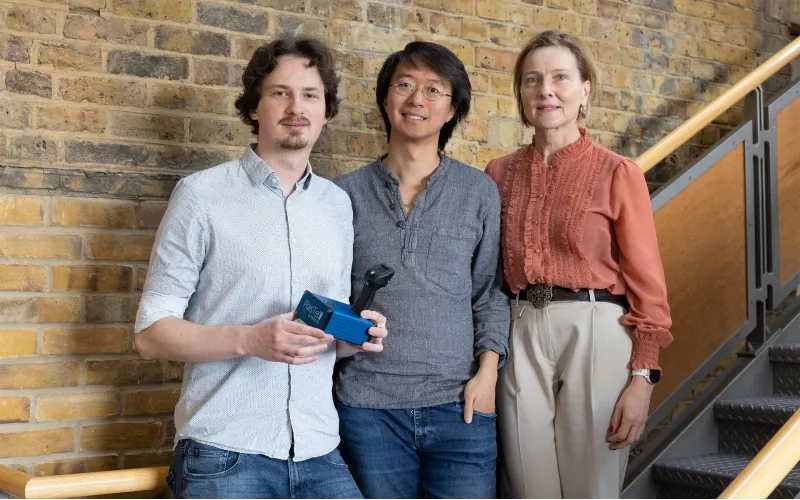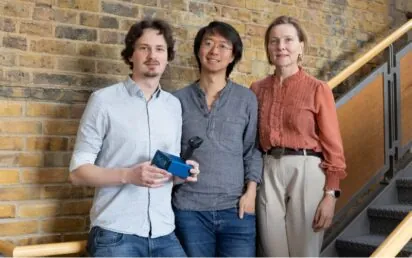London-based startup Matoha has completed its first phase of a £1.5m seed funding round which it hopes will enable it to solve the problem of textiles sorting for recycling.
The firm, which manufactures AI-powered material identification scanners, has raised the funds from Archipelago Ventures and the Circular Plastics Accelerator, with additional investment from Conduit Connect, British Design Fund, Fashion for Good and others.
Matoha has developed manually operated devices that scan and accurately identify the make-up of textiles in less than a second, enabling businesses to sort waste efficiently without a huge investment in infrastructure.
The devices are designed to be intuitive and easy to use, requiring minimal staff training and have been manufactured in the UK by the company’s in-house team.
It has raised investment in order to further develop and extend the capability of the handheld devices.
Volt co-founder raises £2.25m pre-seed funding for new startup
The second phase of the round will support the automation and scaling of Matoha’s technology via AI-driven robotic solutions and is moving to a close in H2 2025.
“This investment will enable Matoha to take our technology to the next level. With this investment we can have a greater impact on processing end-of-life textiles,” said Hans Chan, CTO and co-founder at Matoha.
“This will include improving the AI capabilities in sorting for recycling and reuse. We are also looking at automation which is essential due to the sheer volume of textiles waste.
“Our dream is that every end-of-life garment will pass through a Matoha system. We appreciate the ongoing and targeted support of Archipelago Ventures and Circular Plastics Accelerator, and we are really looking forward to working with them to build the business.”
Justin Guest, founding partner at Archipelago Ventures, added: “Solutions like Matoha’s are critical to unlocking barriers and enabling a circular textiles economy.
“Identification of material types and the ability to sort textiles is key to valorisation of end-of-life textiles and fabrics.
“We have invested in Matoha because of their ability to generate significant traction, with customers attracted by their low-cost, fast and accurate identification devices.
“The investment Matoha has secured will see evolution of this core technology to a robotics solution that will unlock textiles sorting at scale.”
PayPal execs back Ryft’s bid to take on Adyen & Stripe Connect


